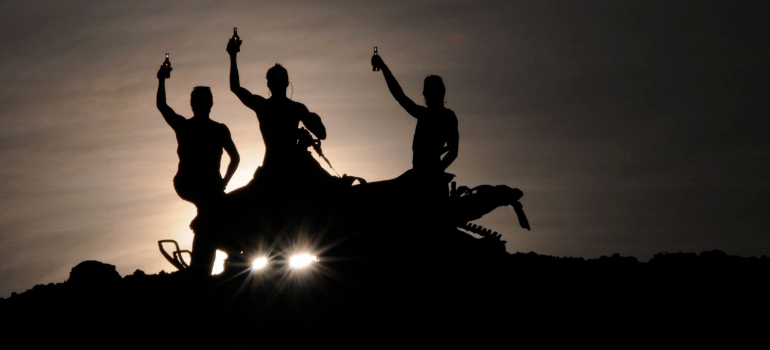Genevieve Creighton researches young men, masculinities and risk taking with the Developmental Neurosciences & Child Health Cluster at Child & Family Research Institute and the UBC Faculty of Medicine
Why does it seem like teenage boys take risks like drinking and driving, doing drugs or trying extreme tricks on mountain bikes?
I think it’s important to note that not ALL young men engage in risky behaviours. Unintentional injury, however, is the leading cause of death and hospitalization for young men under 30 with rates almost triple the rates for young women. While there are multiple explanations for why young men engage in risky activities, including biology and brain development, there is also evidence to suggest that they do them to align with dominant ideals of masculinity. They are providing proof of their manhood.
What is it about graduation and the end of high school that encourages young men to take risks?
Many graduation rituals include drinking, which lowers inhibitions to risk taking. I think, also, that graduation- a time that we associate with a right of passage into adulthood – is a moment rich with possibility. This can lead to a feeling of invincibility and a moment that can be celebrated without consequence. There is also the idea that graduation is the last time they have to be a kid. So even if they don’t regularly drink and drive or jump off cliffs, now is the time that they do it.
How do you keep kids safe at this time of year?
The most effective strategy for keeping kids safe is for the important people in their lives to stay connected. At the same time as affirming the desire to celebrate and to strike out beyond the bounds of childhood to do ‘grown up things,’ we need to talk about strategies to stay safe. It’s about finding the balance between over surveillance and knowing where kids are going. In this transitional moment, it’s important to maintain both a caring and respectful presence.

